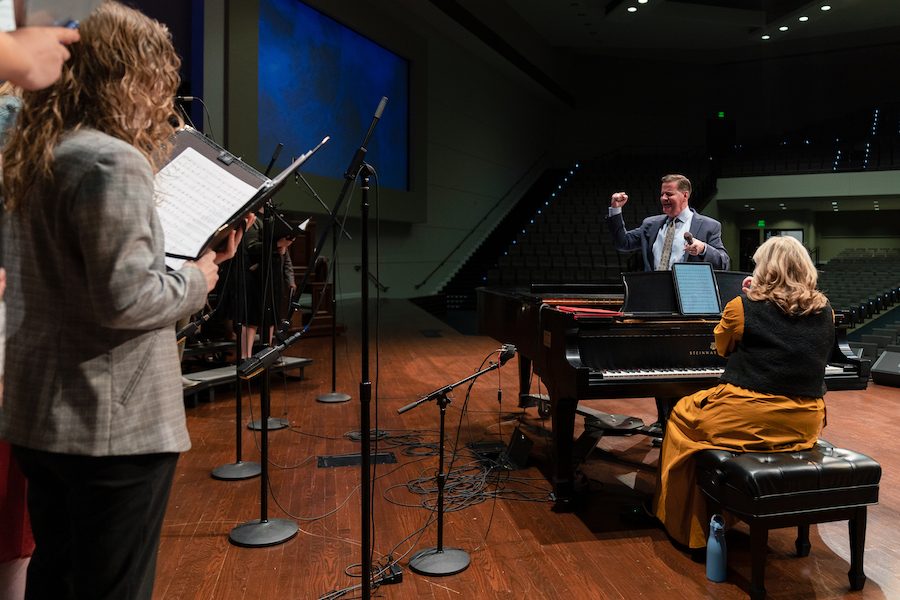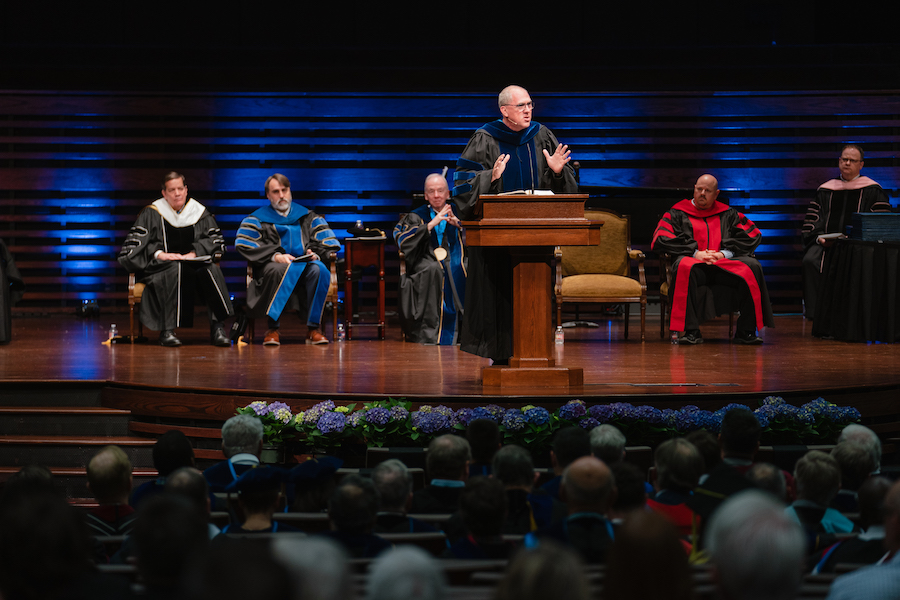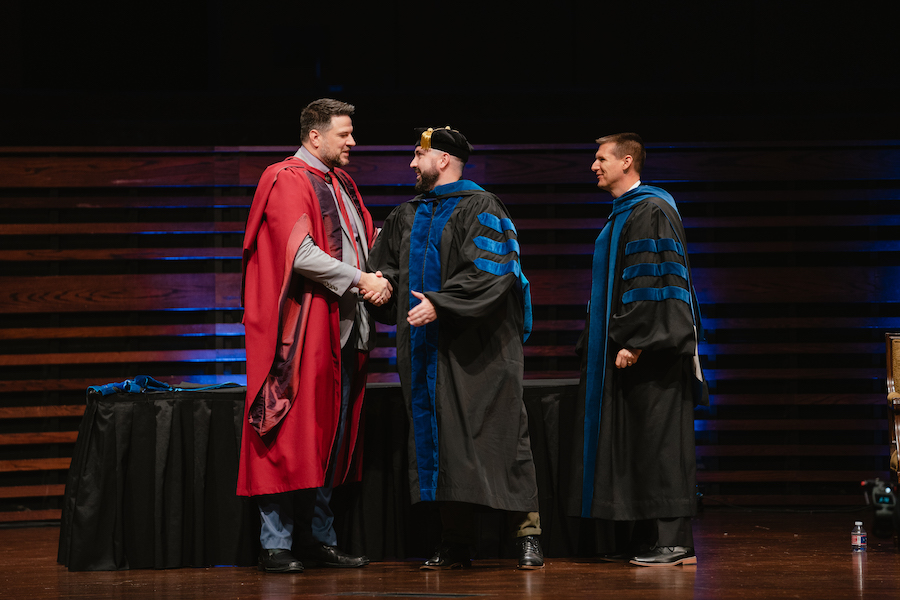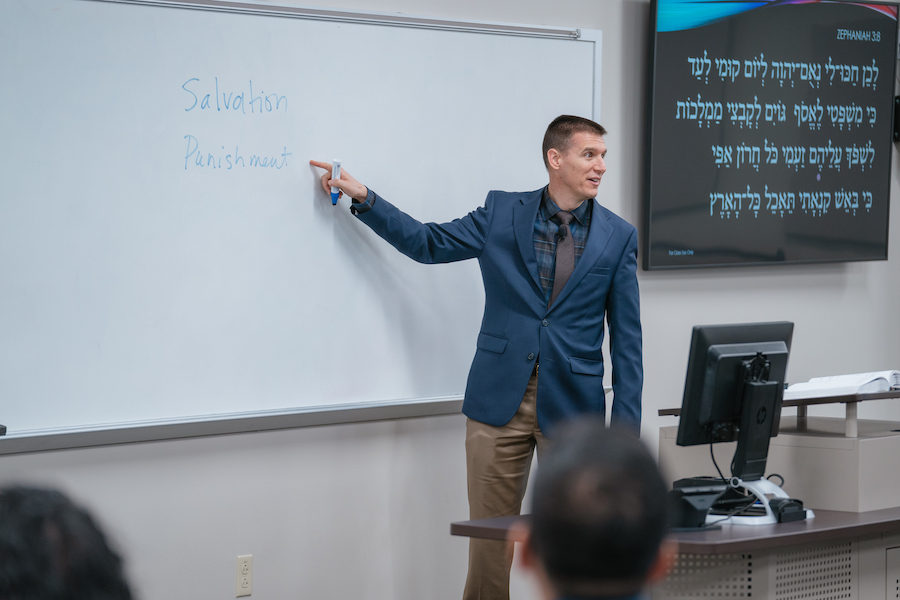A LEGACY OF SOUL-WINNING: Gospel devotion yields a lifetime of results
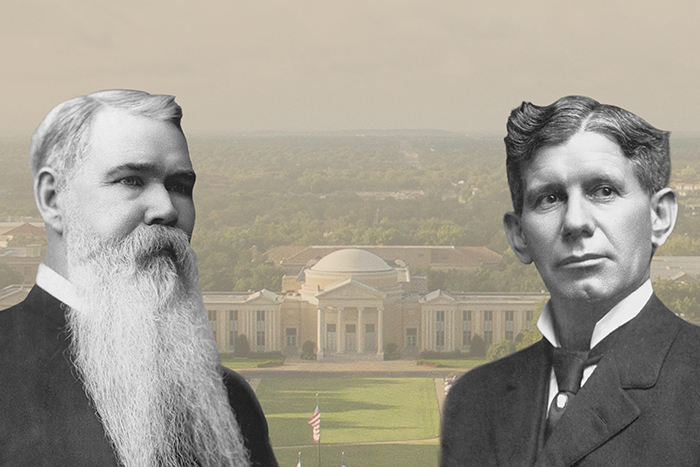
The following is part of an ongoing series examining the evangelism experiences of significant figures from Southwestern Seminary’s history. This story is taken from J. Howard Williams, Prophet of God and Friend of Man, a compilation of stories and observations about J. Howard Williams, Southwestern’s fourth president.[1]
An encounter with J. Howard Williams was an encounter with the Gospel. It would be almost impossible to count the number of lives changed by his witness, for his life was devoted to sharing the Good News with each person he met.
An enthusiastic soul-winner, Williams’ evangelistic mindset began as a boy when his father made an effort to teach him a lesson about the value of prioritizing the local church and its missions efforts.
During the summer of 1903, the circus had come to town, and although many boys his age attended, his father encouraged 9-year-old Williams and his brothers to stay home and work picking cotton. He did so not out of punishment, but so they could use their earnings to contribute to global missions.
These efforts, his father explained, would bring the Gospel to other children all over the world. This lesson remained with Williams the rest of his life. From that day, Williams operated from a mindset that his priority was to win souls to Christ.
One of his earlier documented evangelism encounters took place while he was serving as an army chaplain during World War I. Sick in a French hospital, a soldier in an adjacent bed asked him, “Well, chaplain, what’s it all about anyway? What are we here for? Is it for this? Is this what life is for us?”
In the midst of war, this young man had asked Williams some of the most foundational questions human beings have asked through history. Williams recognized the significance and replied, “Well, that’s a big question to ask when the lights have been turned out, so let’s talk about that tomorrow.”
Williams resumed the conversation the following morning and made an effort to respond to each question and point the man to Christ. Unfortunately, the young soldier ultimately refused Williams’ invitation to accept Christ.
Williams always knew that people might reject him, and even ask difficult questions to stump him. But this never stopped him from pursuing what he believed was all Christians’ responsibility as evangelists. He never hesitated to stop and share the Gospel with someone, even if it meant he would be late to a meeting or an appointment. His duty was to the Gospel.
The Sunday before his death in 1958, Williams preached the Easter service at Olive Place Baptist Church in Fort Worth. After the service, he and his wife met two teenagers. He asked them, “Are you girls Christians?”
When they replied that they were not, he spent the next 30 minutes presenting the Gospel to them. Both girls ultimately accepted Christ as their Savior.
Even in his final days, Williams was a steadfast soul-winner. His devotion to evangelism not only brought people to Christ, but inspired friends, seminary students and faculty to live their lives with an evangelistic zeal such as his.
“The passion and practice of sharing Christ with every person in every possible contact is the true mark of an apostle,” writes Cal Guy, a former missions professor at Southwestern. “Location is far less important than desire. He seemed always ready and able to share, and he did it convincingly, not seeming to patronize someone beneath him, but from genuine interest in other people.”
[1] Charles P. Johnson and Henry Clifton Brown, eds., J. Howard Williams: Prophet of God and Friend of Man (San Antonio: Naylor Co.), 2-3, 7, 30.
